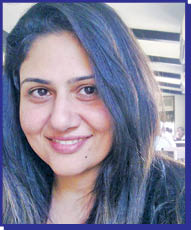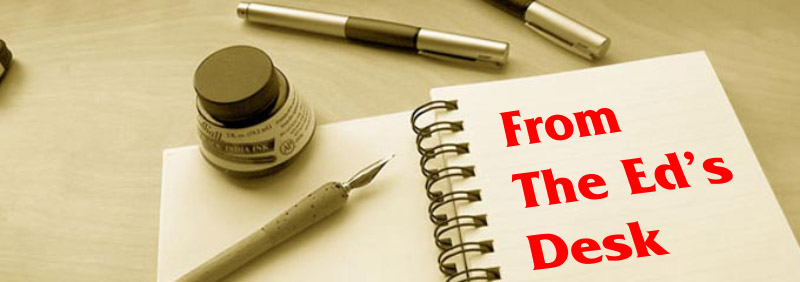
Religion And Rituals…
Every year, most of us look forward to soaking in the blissful experience of the ten most holy days that precede the New Year – the Muktads and Gatha. With the Shahenshahi Parsi New Year on the 17th this month, we are in the midst of these ten days, engaged in heartfelt prayer and rituals, meant to comfort and please the souls of our dearly deceased, before we end with Pateti, to kick off a brand New Year.
On numerous occasions, have I received mail from our readers questioning the need for rituals in our religion. There are some who staunchly believe in religious rituals and there are those who disregard rituals altogether, but keep their faith in prayer and follow the tenets of our religion. Now, to each his own, but I thought I’d share the little knowledge that helped me understand and balance the sense and sensibility of religious rituals and their place in religion.
Any kind of ritual, per se, gives shape to emotions, helping us experience or come to terms with minor or major events of life. Though rituals have a social genesis, these are more than a habit… no birthday party is every really complete without the cake-cutting and blowing off the candles atop the cake, or we can consider the graceful Indian greeting – the Namaste, or the polite Japanese bow, as different forms of greeting based on different cultures. The rituals attached to these events are more than just social constructs – they have a dual purpose – rituals are the means to both, expressing the essence of an event, as well as experiencing that essence. The handshake helps express the essence of cordiality, the candle-blowing helps experience the essence of happiness, and the namaste or bowing down helps both, express and experience the essence of humility. Likewise, numerous other rituals related to other major events, like birth, death, marriage, etc, play a great role in providing a more intense emotional expression and experience.
And so it is with religious rituals – or so, at least that was the original intention behind these. Religious rituals, when expressed and experienced in their rightful essence, can be indispensable in deepening spiritual insight and instilling religious values and attitudes in our lives. Religious rituals are a means of enacting and expressing the philosophy of the religion. In fact, it is religious rituals, and not beliefs, which provide the social glue for religious communities, especially for small and close-knit ones, like ours.
Yet, some of us prefer to do away with our religious rituals altogether. With reason. Often, we are disillusioned when we see rituals being practiced robotically and perfunctorily, as a habit without devotion or feeling. And add to that the disappointment of the ‘commercial’ aspect that has been increasingly assuming importance over the years, leaving a bitter taste in the mouth when we witness the essence of religious rituals being unfortunately measured monetarily – with occasions being ‘milked’ by playing on the vulnerability of the laity… and religious rituals get wrongly relegated to primarily being the reserve and focus of commercial transactions. But this blanket rejection of rituals takes away from our religious experience and the expression of our religious sentiments, minimizing our access to its essence to a merely conceptual level.
Over the years I have received comprehensive feedback mainly complaining about various related aspects – right from the high cost of ‘Muktad tables’ in Agiaries and pricey funeral prayers; to the feelingless, robotic and hurried manner in which rituals are performed; or how “rituals have taken over religion”; or then, most importantly, how there is little or no understanding on how to comprehend and appreciate the essence of our rituals vis-à-vis our religion. Why I have termed the latter query as most important, is because when we understand the answer to that, it answers the rest of the questions.
So, how do we reach this essence? By taking it upon ourselves to educate ourselves about what exactly this essence is about; what is the connection between the religious ritual and the essence, and demystifying the principles and techniques that connect the ritual with the essence. When we educate ourselves about these lesser known truths behind our religious rituals as were originally intended, we will be able to comprehend and appreciate how the essence of our rituals can justify being synonymous and synchronous to the essence of our religion.
And what better time than now to start that journey… especially, if you observe and practice the Muktads and Gathas, but even more especially, if you don’t! Praying or practicing our glorious religion and its rituals, without understanding the essential connect between these, leads us into eventually becoming God-fearing as opposed to God-loving. ‘Blind faith’ is for the religiously impaired. Our religion is the most powerful and the most empowering, based as it is, on Wisdom and Truth – the constituents of the brilliant light that Ahura Mazda shines on us. Religious devotion is a fervent mix of prayer and ritual. Without understanding the essence that connects the two of these, devotion is rendered incomplete. Like they say, some people ‘feel’ the rain, others just get wet.
Do keep an eye out for our Bumper Parsi New Year Special issue next Saturday, 11th August, 2018. With a theme that celebrates and explores various kinds of relationships, as seen from our Community’s unique perspective, PT’s New Year Special issue is bound to find its way yet again into your Collectors’ Items trunk – with funny, thought-provoking and engaging content. And you just can’t miss the highlight of our New Year Special issue – a special New Year greeting and message from a man we all adore and cherish, our very own living legend, loved alike by our Community and all others, nationally and globally…. undoubtedly the tallest feather in the cap of all Parsi Pride! Watch this space, next week!!
Have a lovely weekend!
Anahita
(anahita@parsi-times.com)
- The Joy of Giving – A Parsi Legacy - 15 February2025
- From The Editor’s Desk - 8 February2025
- That Time Starts NOW! - 1 February2025
